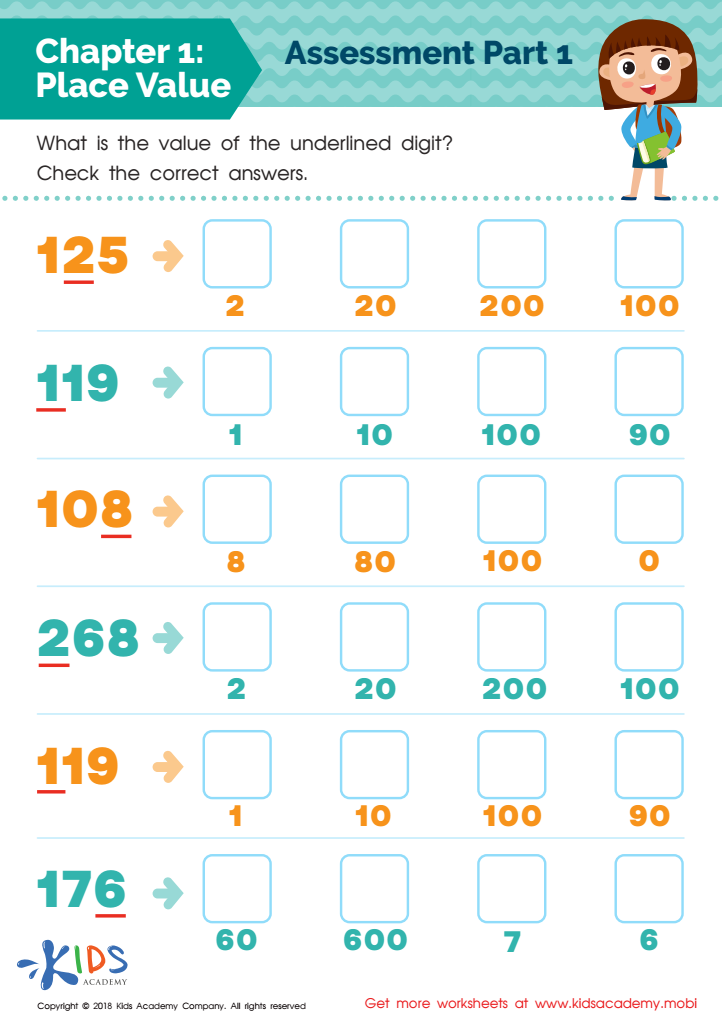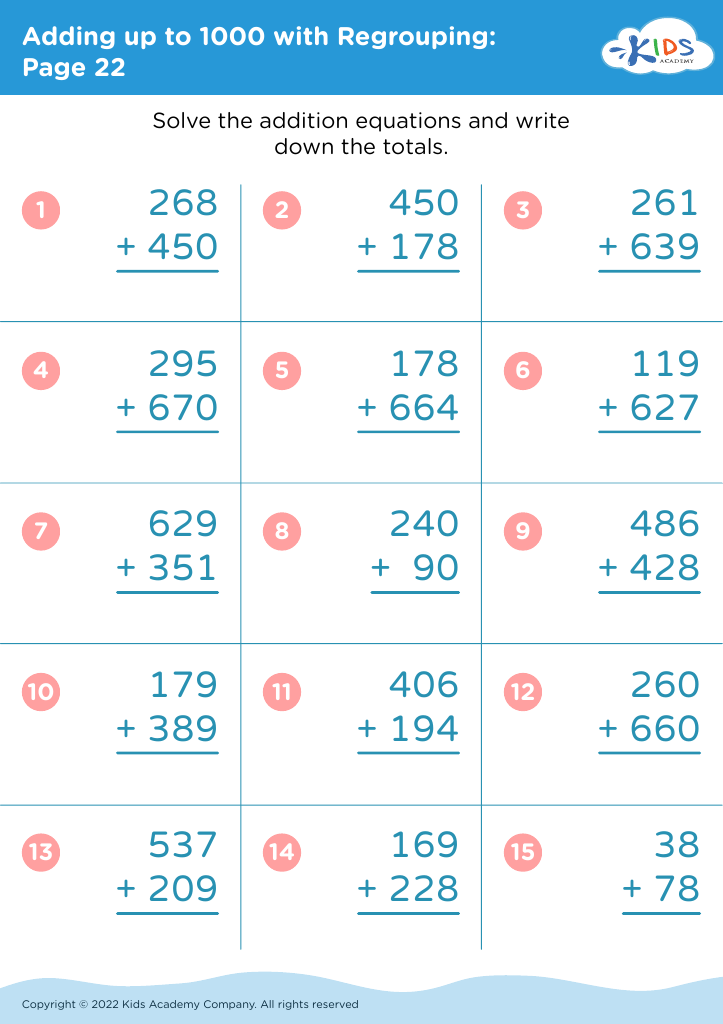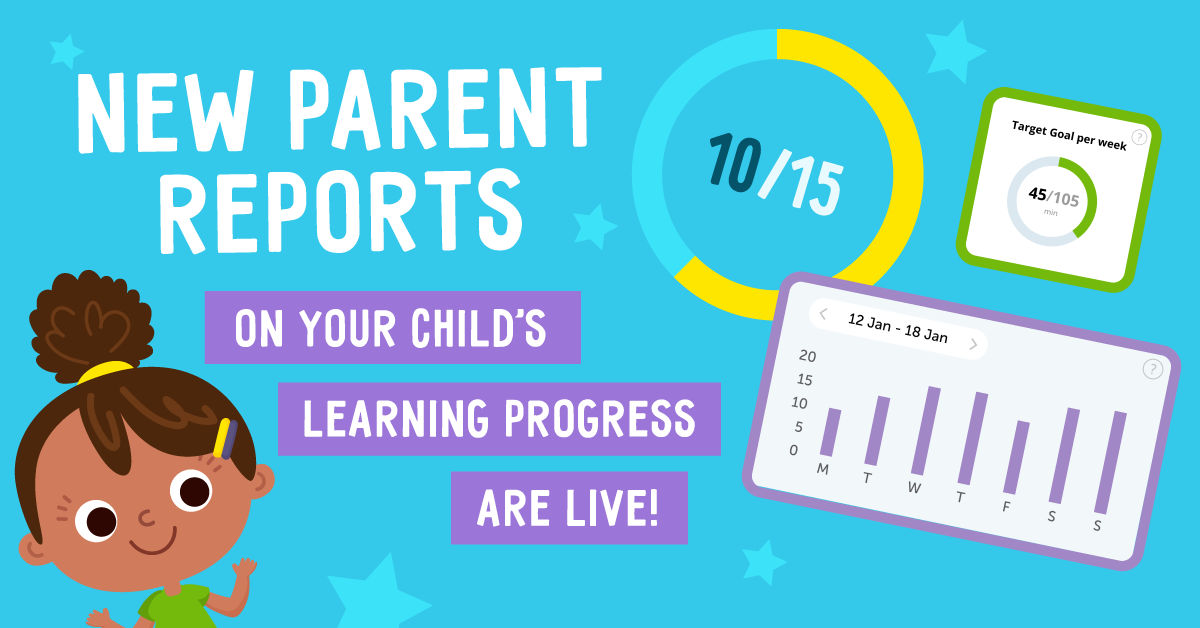Identify numbers Worksheets for Ages 6-7
3 filtered results
-
From - To
Our "Identify Numbers Worksheets for Ages 6-7" are specially designed to make learning numbers fun and engaging for young learners. These worksheets help children master number recognition and counting skills essential for their mathematical foundation. With vibrant illustrations and a variety of exercises, kids will have endless opportunities to practice and reinforce their number knowledge. Perfect for both classroom and home use, these worksheets offer clear instructions and are aligned with common core standards. Let your child enjoy a hands-on approach to learning numbers while building confidence and boosting their early math skills with our expertly crafted resources.


Place Value: Chapter 1 Worksheet
Identifying numbers at ages 6-7 is a crucial developmental milestone that serves as the foundation for a child's mathematical understanding and overall cognitive development. At this age, children are beginning to attend school and are introduced to basic arithmetic concepts. Recognizing and understanding numbers enables children to engage in more complex mathematical operations such as addition, subtraction, and eventually multiplication and division.
Moreover, number identification is key to developing problem-solving skills and logical thinking. It allows children to start grasping patterns, sequences, and the relationship between different numbers. This early proficiency builds confidence in math, which can influence positive attitudes toward learning and academic success.
Beyond academics, numerical understanding is important for everyday activities. Children use numbers to tell time, understand the concept of money, follow recipes, and play various games. Early number identification also aids in developing their ability to manage and organize information, a skill useful in their daily lives and future educational pursuits.
By fostering an environment that encourages and supports number recognition, parents and teachers can help children build a solid foundation for mathematics. This equips them with essential skills that will be used for the rest of their lives, both inside and outside of the classroom.

 Assign to the classroom
Assign to the classroom














